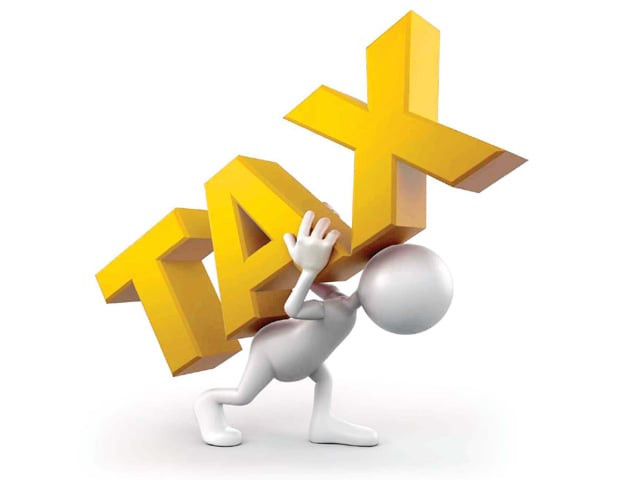Why burden existing taxpayers?
Those the tax net will now have to cough up the extra 15 per cent so that the trader can go on having a freebie.

The measures have been enacted also so that the government is able to be on track to continue receiving financing from multilateral lending institutions. Of course, the government resorted to promulgating ordinances because it could not have these measures passed in parliament, which is how such things should be done. Also, and it would be fair to say this, had the government been able to widen the tax net and were the Federal Board of Revenue to apprehend tax evaders and reduce the corruption within its own ranks, which is partly to blame for all this, there would perhaps be no need to burden existing taxpayers. In this regard, the proposed introduction of the reformed general sales tax (RGST) would have been key, but the government was unable to convince its allies in parliament to support what was a sound and sensible proposal.
The end result is that the government has fallen short of its revenue collection target, in large part because of the traditional refusal of the population to pay taxes, foremost among them the traders who have revolted against the RGST and have prompted the two big political parties whom they support to use anti-RGST rhetoric to sabotage the budgeted revenue estimates. Add to this the traditional narrow tax net allowing the government to collect only up to 9-10 per cent of GDP as tax compared to India’s 16 per cent, and you have a colossal state-destroying crisis on your hands.
It is absolutely unethical to describe the helplessness of the government as ‘taxation without representation’ in the media. The role of the media has been irresponsible and unforgivable. Even when the policy of a TV channel was not to join the opposition politicians in launching attacks on the RGST and oil price adjustment, newscasters and TV anchors were heard referring to taxation as a ‘bomb’ thrown on the poor masses of Pakistan. It is always the poor man in the street who is interviewed; no reporter says that the crisis was actually triggered by the refusal of the trader and shopkeeper to pay the RGST.
Now the axe will fall on those who are already in the tax net. They will have to cough up the extra 15 per cent so that the trader can go on having a freebie.
The government has finally announced that it will cut its spending by Rs120 billion, but this so-called sacrifice will be possible only through the cutting of the development budget and it would be fair to assume that the defence expenditure will not be touched (in fact, it has already been increased once in the current fiscal year, with not even as much as a whimper in much of the media).
If one were to ask the private sector entrepreneur — who is the ultimate solvent of the economic crisis of Pakistan — he will posit conditionalities that our politicians are in no mood to heed. The first condition is ‘political stability’ which means that the politicians in parliament stop pulling down the edifice of the national economy through their politics of dire threat in the style of Taliban and al Qaeda. The second condition is law and order. The irony is that terrorism from Taliban and al Qaeda is being compounded by the violence of the political parties in Karachi. Defying the IMF and cornering the United States by putting Raymond Davis on trial may be emotionally satisfying through enhancement of national pride, but as state policy of economic survival they are nothing short of suicide.
Published in The Express Tribune, March 18th, 2011.














COMMENTS
Comments are moderated and generally will be posted if they are on-topic and not abusive.
For more information, please see our Comments FAQ